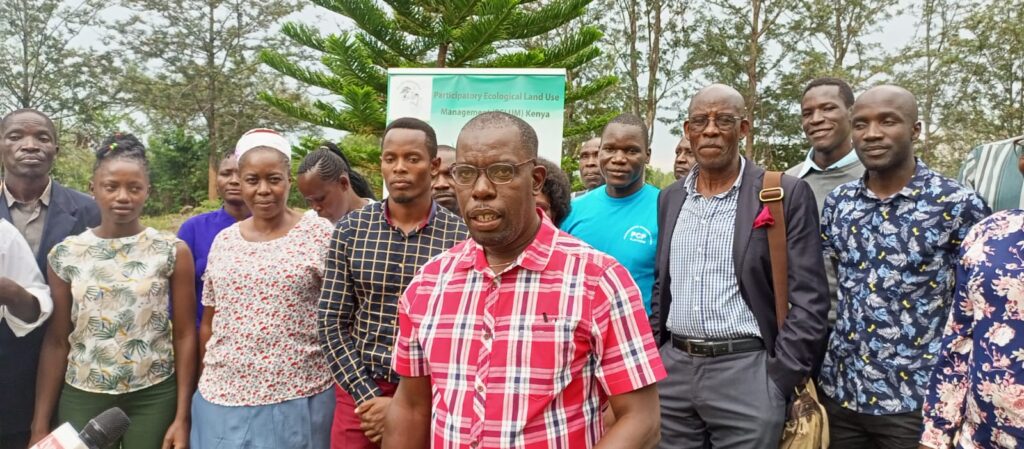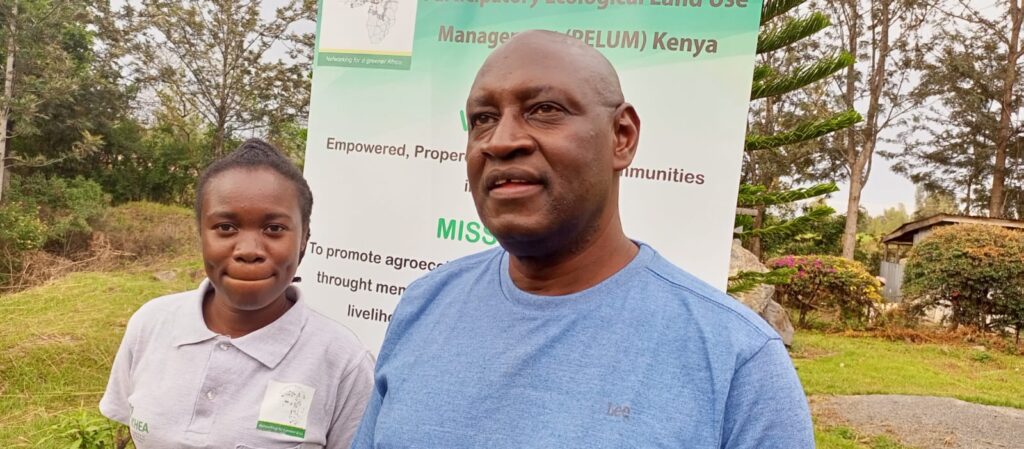A section of farmers from Nyanza region now want President William Ruto to rescind his decision to lift the ban on Genetically Modified Organisms (GMO) foods.
Through their network, Participatory Ecological Land Use Management (PELUM) Association, the farmers want more deliberation on the matter.
The President must rescind his decision, and provide proper platform for engagement by stakeholders instead of pushing it through our throats
Fredrick Taabu
According to the farmers, the President’s decision was a rush which did not involve key stakeholders in the agriculture sector.
Through PELUM, the farmers have been holding engagement forums to understand the impact of the President’s move, with the aim of drafting a petition against the move.
Pelum
PELUM is a network of 280 Civil Society Organizations and NGOs working with small-scale farmers in East, Central, and Southern Africa.
The network which has 57 member organizations in Kenya promotes agro-ecological principles and practices through; advocacy and policy influence, networking, capacity development, information, and knowledge sharing.
The principles and practices include; organic agriculture, sustainable agriculture, regenerative agriculture, agroforestry, permaculture, conservation agriculture, biodynamic agriculture, family farming, and bio-intensive agriculture.
On Wednesday, farmers drawn from various PELUM Association members congregated in Muhoroni, where they voiced their concerns over the lifting of the ban on GMO.

Agro-ecology
Fredrick Taabu from Community Rehabilitation and Environmental Protection (CREP) Program said there is a lot of fear among farmers following the President’s move.
CREP is a member of PELUM and works around Food Sovereignty which involves Agro-ecology, organic farming, sustainable agriculture, and other forms of non-convention agriculture.
There are a lot of issues raised with GMO, which include the safety of the science around it, the cost involved, its sustainability, and many other unaddressed concerns
Fredrick Taabu
“There are a lot of issues raised with GMO, which include the safety of the science around it, the cost involved, its sustainability, and many other unaddressed concerns,” said Taabu.
He added: “The President must rescind his decision, and provide proper platform for engagement by stakeholders instead of pushing it through our throats.”
Anxiety
His sentiments were echoed by Pamela Opiyo, representative from Support for Tropical Initiative in Poverty Alleviation (STIPA).
According to Ms Opiyo, the anxiety and dilemma around the GMO topic is not good for the farmers and consumers.
“GMO has both good and bad sides, and from the available information, the bad out-ways the good, and we need to have a dipper discussion,” said Opiyo.
“Mr President sir, kindly relook this decision. We feel this move was rushed.”
GMO not safe

Daniel Maingi, an Agricultural expert says Kenya lacks the capacity to handle the impacts of industrial adoption of GMO technology.
The Coordinator, Kenya Food Alliance says questions around the impacts of the technology on environment, health, as well as economic sustainability must be addressed.
“We are not totally opposed to biotechnology, but when it’s going to affect the environment, then we have to relook at it,” he said.
He says Kenya is able to feed its people through sustainable agriculture, for example through agro-ecology and use of naturally developed resistant crops.
Politics and machinations have taken over the GMO debate. There are big companies behind the push for GMO without considering the negative impacts
Daniel Maingi
“Politics and machinations have taken over the GMO debate. There are big companies behind the push for GMO without considering the negative impacts,” he added.
He noted that Kenya is able to feed its people through the improvement of the available traditional food production methods through proper policy formulation.
“How do you explain when people are dying of hunger in one part of the country while some people are throwing food in another part?” he posed.
